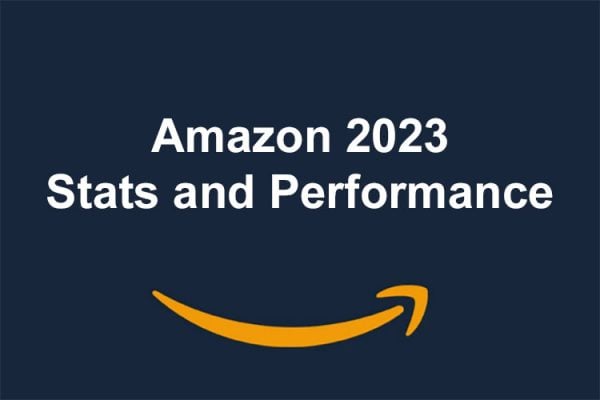 I’m always amazed at the number of sellers who complain about eBay competitors undercutting them on prices, and yet do the same on their own website.
I’m always amazed at the number of sellers who complain about eBay competitors undercutting them on prices, and yet do the same on their own website.
It’s not unusual to see a seller bemoaning their luck that someone is offering lower prices than them on eBay, and even insisting that their competitor must be losing money as they themselves get the best possible discount from the wholesaler or manufacturer. Whilst there’s a valid complaint that sellers who aren’t VAT registered may have an advantage, it’s rare that you can know with absolute certainty the prices that your competitors pay.
So having complained about competitors undercutting them, why do sellers try to drive business to their own website based on the fact prices are cheaper there? A common excuse is that without eBay or Amazon fees to pay, a seller can afford to offer lower prices, but in reality that’s not true. There’s always a cost in driving traffic to a website and that normally means investment in time, money or both.
For a site to be successful it’s likely that you’ll need to invest in paid search, shopping comparison engines, or both. If you’re reliant on diverting customers (either actual or potential) from eBay and Amazon to your website then although costs may be low you’re limiting your potential pool of customers. You’re also up against the buyer who’s simply happy purchasing on a marketplace and isn’t interested in buying direct from you regardless of price.
My suggestion would be to sell at higher prices on your website, but offer added value to justify the purchase price. For instance on eBay you may offer a camera for sale, but on your website you can offer a choice of lenses, a tripod, a flash, a case, rechargeable batteries and charger and a host of other accessories. Rather than offering a limited range of models you can offer the entire product line as well as allowing the buyer to fully customise the order to their requirements.
When a buyer purchases from your website customer service (although vitally important if you want repeat business) is less critical than on eBay. If the order ships a few days late, your communications are slower or your postage prices are higher you know you’re not going to lose your business through poor feedback.
You can use buyer reviews to pull in future business and consider rich media to offer 360° interactive views. Embedded video and customisation options are both of value to buyers as are comparisons with other models/products that you have to offer.
It’s also worth remembering that if you sell on Amazon they mandate that the price offered to Amazon customers must match or be lower than the price you offer the same goods elsewhere online.
Whilst eBay and Amazon are great venues for generating sales the fees you pay are directly related to the pool of customers that these marketplaces can provide you. On your own website it’s up to you to generate business so don’t short sell by undercutting yourself on marketplaces.
You may win in the short term with cut price offers, but long term if you decide (or are forced) to stop selling on eBay or Amazon you’ll be left with a site selling at low margin which ultimately may not be profitable without a stream of buyers from marketplaces. Use your website to offer a premium services to discerning buyers and keep your cut price offers for eBay or Amazon where the work of finding customers is done for you.










9 Responses
Almost without exception, our prices on eBay are lower than prices on our websites.
The main reason for us is that competition is so high on eBay that prices/margins get squeezed, as we all know. Unless we sell at a similar low price, the sales would simply disapear.
I couldn’t agree more.
Some excellent points. Also , if you are diverting ebay customers to your own site by offering a discount code , you will be eating a little bit further into that reduced margin.
Doesn’t Amazon have a ‘rule’ whereby items you offer on the Amazon platform cannot be lower elsewhere, such as your own website ?
I find it more expensive to sell through Amazon but I also think it has the potential for greater sales velocity than anywhere else. If you find a product that sells well on Amazon I think that is a good excuse to raise the price on other venues. If a product doesn’t have a good sales velocity I think you should remove it from Amazon and let your own website or eBay determine the price. I think that you should allow the venue which has the greatest potential of sales for an item determines the price. Selling a product exclusively through one or two venues is sometimes the best solution.
“If a product doesn’t have a good sales velocity I think you should remove it from Amazon and let your own website or eBay determine the price. I think that you should allow the venue which has the greatest potential of sales for an item determines the price. Selling a product exclusively through one or two venues is sometimes the best solution.”
Couldn’t have put it better – Amazons price parity rule has only resulted in us removing many products from that site and we continue to remove more each day.
As a buyer I look for transparency – and the simplest offer is ‘it’s this price however you find us / whichever channel you buy from’. If I buy from an ebay seller, then they tell me it was cheaper on their website, I’m not too impressed. I understand why it happens, but it doesn’t work for the customer – and that has to be the bottom line.
“There’s always a cost in driving traffic to a website and that normally means investment in time, money or both.”
Very true – but the return on investment is arguably better value than ebay in the long run. That’s because you pay just once to acquire a customer rather than with ebay where you pay every time they make a purchase. Of course, the up-front risks are much higher, though.
Does anybody know if i can take reviews of my products left by customers on Amazon and put them on my website?